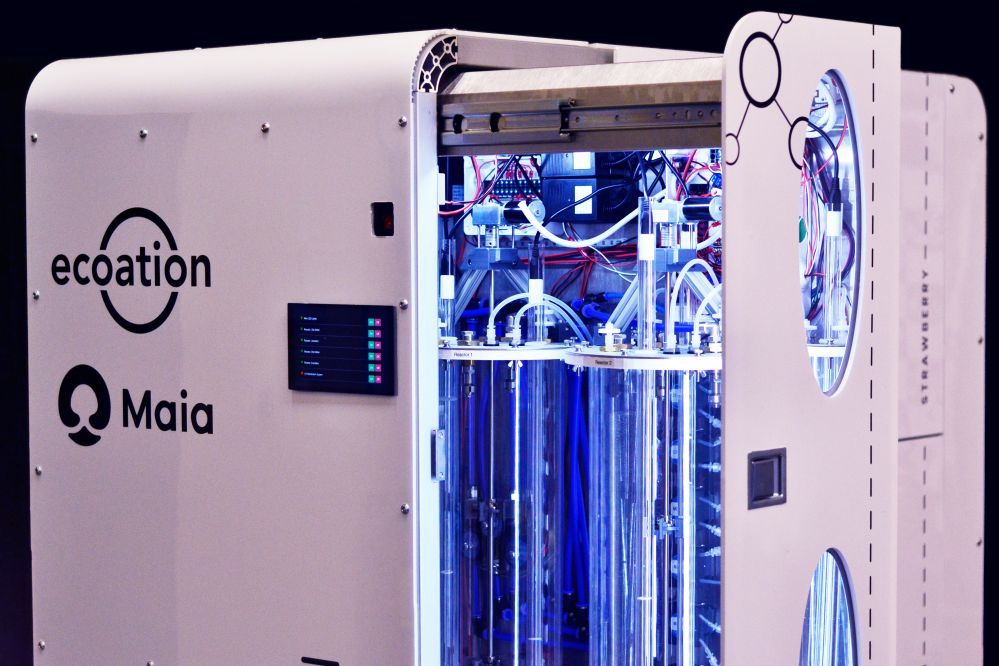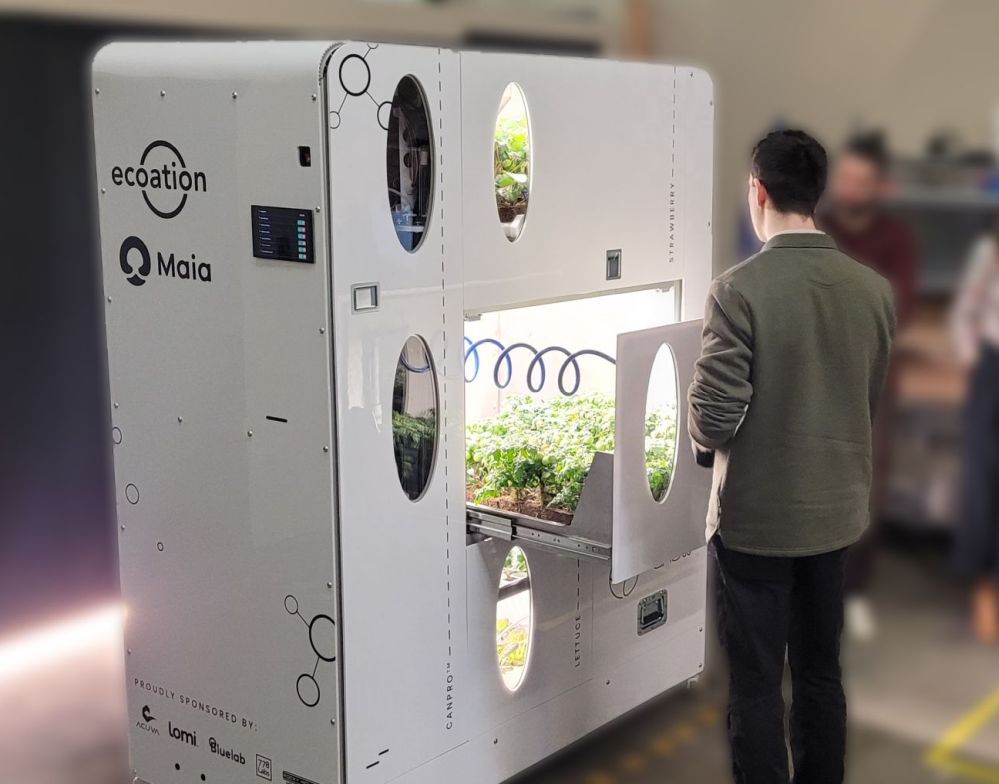Vancouver-based Maia Farms and Ecoation have bagged the grand prize from the Canadian Space Agency and Impact Canada in the Deep Space Food Challenge with a growing system for mycelium and fresh produce capable of producing 700kg of fresh food a year in a device the size of a wardrobe.
Launched in 2021 by NASA and the Canadian Space Agency the Deep Space Food Challenge was designed to identify tech that can:
- Help fill food gaps for a crew of four astronauts for three years with no resupply
- Improve the accessibility of food on Earth in urban centers or extreme environments
- Achieve the greatest amount of food with minimal inputs and waste
- Create a variety of palatable, nutritious, safe foods requiring minimal processing time
NASA and CSA are running parallel challenges, each with their own rules, prizes and eligibility . The US winner of the challenge will be announced in August.
700 kilos of fresh food a year in a device the size of a wardrobe
The prize-winning modular CANGrow system from Ecoation and Maia Farms operates on standard 120-volt power and can be connected to a regular three-quarter inch garden hose.
It has four chambers for growing crops such as dwarf tomatoes, strawberries, and lettuce using hydroponics or aeroponics with adjustable LED lighting developed by Ecoation (founded by Maryam Antikchi and Dr. Saber Miresmailli in 2010), which specializes in autonomous climate control and closed-loop machine vision-based crop management technology.
The fifth chamber grows protein-packed mycelium [the filamentous-like roots of mushrooms] using biomass fermentation in UV-sterilized bioreactors from Maia Farms (founded by Gavin Schneider and Ashton Ostrander in 2021). Waste is processed in an accelerated composting chamber developed by Lomi.

Biomass fermentation process for mycelium with ‘significantly higher yields’ than Fusarium strains
Back on earth, meanwhile, Maia Farms reckons its biomass fermentation platform could have the edge over other players in the rapidly expanding mycoprotein space, as it can deliver “significantly higher yields,” claims cofounder and CEO Gavin Schneider.
Rather than using Fusarium mold-type strains (such as those deployed by Quorn and ENOUGH Foods), Aspergillus oryzae (grown by Nosh Bio) or Neurospora crassa (used by Meati Foods and Better Meat Co), Maia Farms is growing mycelium from an edible mushroom variety, the fruiting body of which has been widely consumed for centuries, easing the regulatory process, he tells AgFunderNews.
“I can’t say what we’re using yet, but I can confidently say it’s yielding significantly higher than mold species are able to obtain in a similar bioreactor system. Plus we’re also able to use agricultural byproducts rather than basic sugar as our feedstocks.”
The ingredient, which has a neutral taste, 66% protein content and a meaningful amount of fiber, iron, and calcium, is already being tested by food manufacturers in Canada including alt-meat maker Big Mountain Foods, says Schneider, who has just raised an undisclosed amount of pre-seed funding.
“This is a versatile ingredient that can be used in everything from meat alternatives to snacks, baked goods and children’s health and nutrition. What we’re making right now is a blended product combining mycelium and plant-based protein because we don’t have the volumes, but by 2025 we’ll have the volumes to sell [mycoprotein as] a pure product.”
Manufacturing setup
Maia Farms is currently working with a co-manufacturer in Saskatchewan but is “looking at other fermentation CDMO [contract development and manufacturing organization] operations later this year,” says Schneider. “We know we have something very special and we’re able to show a clear path to profitability.”
He adds: “We’ve built out an IP pathway which will protect our process and the know how about how to produce the ingredient in this particular production system. We’ve filed a number of patents over the last year that protect the overall process and cover various different feedstocks we’re able to produce on and the different species we’re able to work with. We’ve also patented our unique bioreactor design.
“I don’t know whether our technology is applicable at 100,000 liters scale yet, but it certainly is at the 100-liter scale. For this industry to really take off, we have to be able to achieve the highest yields that will justify capital-intensive infrastructure.”





